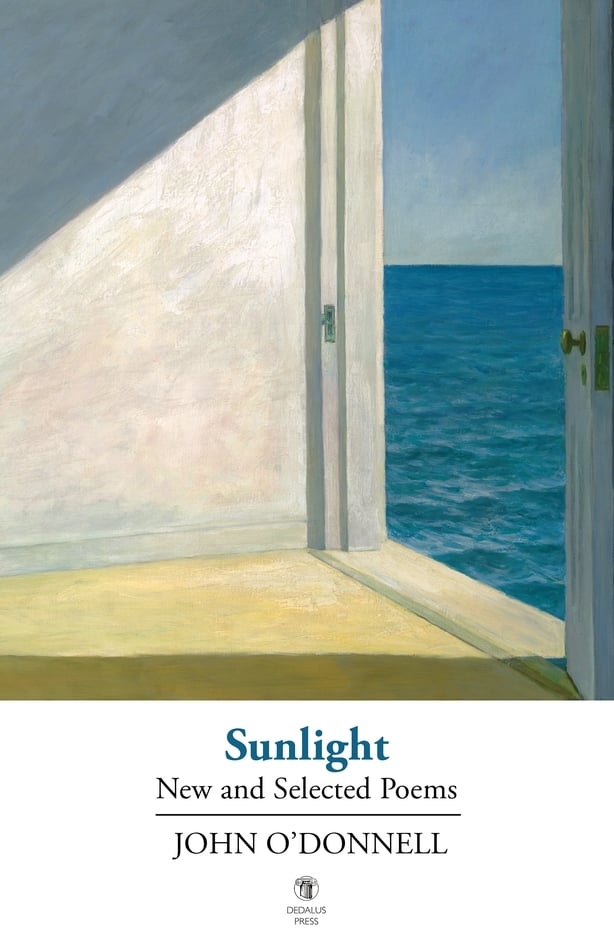John O'Donnell's poems are intimate yet locate themselves at the right remove in their cool, reflective stance.
What is it about the deaths of parents, and how it appears to bring out the best in poets? The bond is unique, the poet must strive for particular originality in what he/she writes, because what is being celebrated or honoured is one fiercely particular relationship which, while it may sound the requisite chime in the reader, must, to be successful, resemble no other.
Feeling and loss of an acutely personal kind, the impulse riven perhaps by memories of conflict, mild or otherwise, drive the poet to the top of their game, it seems.
John O’Donnell is no exception in this regard, and in fact ‘top of the game’ is a suitable simile as applied to a number of the poems collected here. Take Wilson, the first of the poems selected from his 2014 collection, On Water, whose title derives from a brand of golf club. For golf indeed is the game in question, the poem recalls days on the links, as the father instructs the son how to hold the club and so on. It ends with these numinous lines, intimating yet again, as the poem does throughout, the imminent passing of his father, who is now an old man.
His ball/just inches from the drop. Our lives together/a groove worn by my thumb. The Wil of Wilson/almost gone; soon all that will be left will be the son.
The earlier poem, The Grip, taken from the 2004 collection, Icarus Sees His Father Fly, also features father and son on the golf course. The final stanza is stirring, as the father is obliged to hold his son close to show him once again how to hold that club.
I feel his hands closing over mine. Try holding it/like this. The club pours, lofts the ball into the dusk./ So close then, the two of us: almost close enough to kiss.

Any decent poet who has written a requiem or eulogy in verse for a parent should empathise with the sentiment of Sunlight, the title poem, the first of of the new poems selected. At his mother’s final bedside, the protagonist poet knows that the ensuing requiem is grimly inevitable. He can, moreover, discern the manufacture of the poem before it happens while fully resigned to its gloomy inadequacy. Life ending, life going on, regardless of words, just like the innocent spill of sunlight in the final lines of the poem:
… one day I would set down these tiny, useless marks/ and somehow think they were equal to all of this
Or even to the sunlight falling for the last time/ on my mother’s face without occasion.
Nighthawks is also a new poem, and indeed one of the best in the collection, sustaining a wistful note from start to finish. The 12-year old boy, somehow at a loss, though in the loving company of his mother while the hard-working doctor father attends to his practice. O’Donnell takes the temperature of the father’s absence exactly as it might be felt, while intimacy grows perforce between mother and son .
Poetry (also taken from On Water) is a brilliantly accurate paradigm which transposes the lore - and the missed chances - of the game of golf onto the activity of poetry-writing. Mischievously enough, golf is never mentioned, nor indeed the word poetry, except in the title.
There are poems here too which vividly recall the texture of schooldays, such as the wonderful The Clock Tower, where the hands of the school clock are set
a little fast, as if what lay ahead for us would not come soon enough.
Nearing Distance recalls a former lover amidst a welter of suffused memories of Paris and the effort to try and remain friends, that tricky thing. Time marches on anyway, just like the proverbial sunlight, as the poet pores over a small bundle of old letters.
The rubber band still holds, and we have sealed off all banalities, but/ it’s time that’s now ransacking our city, looting in doorways.
Recommended.







